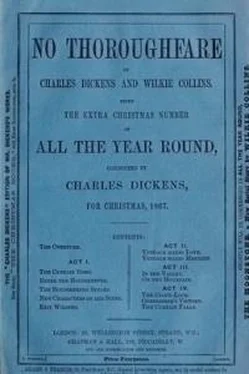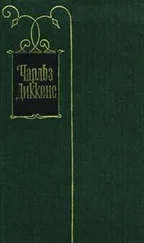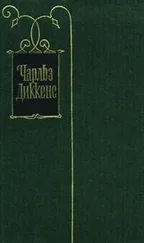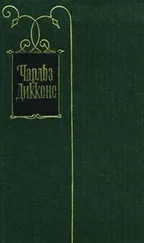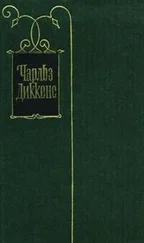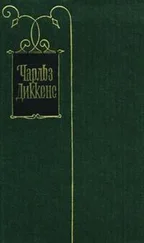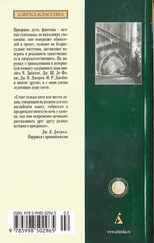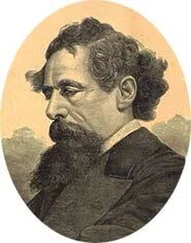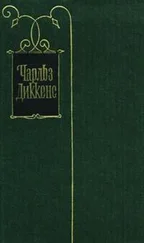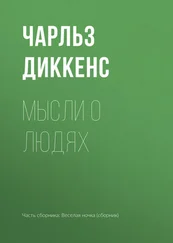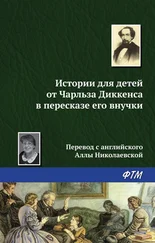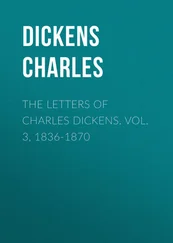Чарльз Диккенс - No Thoroughfare
Здесь есть возможность читать онлайн «Чарльз Диккенс - No Thoroughfare» весь текст электронной книги совершенно бесплатно (целиком полную версию без сокращений). В некоторых случаях можно слушать аудио, скачать через торрент в формате fb2 и присутствует краткое содержание. Год выпуска: 2014, Издательство: epubBooks Classics, Жанр: Классическая проза, на английском языке. Описание произведения, (предисловие) а так же отзывы посетителей доступны на портале библиотеки ЛибКат.
- Название:No Thoroughfare
- Автор:
- Издательство:epubBooks Classics
- Жанр:
- Год:2014
- ISBN:нет данных
- Рейтинг книги:5 / 5. Голосов: 1
-
Избранное:Добавить в избранное
- Отзывы:
-
Ваша оценка:
- 100
- 1
- 2
- 3
- 4
- 5
No Thoroughfare: краткое содержание, описание и аннотация
Предлагаем к чтению аннотацию, описание, краткое содержание или предисловие (зависит от того, что написал сам автор книги «No Thoroughfare»). Если вы не нашли необходимую информацию о книге — напишите в комментариях, мы постараемся отыскать её.
No Thoroughfare — читать онлайн бесплатно полную книгу (весь текст) целиком
Ниже представлен текст книги, разбитый по страницам. Система сохранения места последней прочитанной страницы, позволяет с удобством читать онлайн бесплатно книгу «No Thoroughfare», без необходимости каждый раз заново искать на чём Вы остановились. Поставьте закладку, и сможете в любой момент перейти на страницу, на которой закончили чтение.
Интервал:
Закладка:
Obenreizer took the pen in silence, and signed his niece's release. On receiving the indemnity in return, he rose, but made no movement to leave the room. He stood looking at Maitre Voigt with a strange smile gathering at his lips, and a strange light flashing in his filmy eyes.
"What are you waiting for?" asked Bintrey.
Obenreizer pointed to the brown door. "Call them back," he answered. "I have something to say in their presence before I go."
"Say it in my presence," retorted Bintrey. "I decline to call them back."
Obenreizer turned to Maitre Voigt. "Do you remember telling me that you once had an English client named Vendale?" he asked.
"Well," answered the notary. "And what of that?"
"Maitre Voigt, your clock–lock has betrayed you."
"What do you mean?"
"I have read the letters and certificates in your client's box. I have taken copies of them. I have got the copies here. Is there, or is there not, a reason for calling them back?"
For a moment the notary looked to and fro, between Obenreizer and Bintrey, in helpless astonishment. Recovering himself, he drew his brother–lawyer aside, and hurriedly spoke a few words close at his ear. The face of Bintrey—after first faithfully reflecting the astonishment on the face of Maitre Voigt—suddenly altered its expression. He sprang, with the activity of a young man, to the door of the inner room, entered it, remained inside for a minute, and returned followed by Marguerite and Vendale. "Now, Mr. Obenreizer," said Bintrey, "the last move in the game is yours. Play it."
"Before I resign my position as that young lady's guardian," said Obenreizer, "I have a secret to reveal in which she is interested. In making my disclosure, I am not claiming her attention for a narrative which she, or any other person present, is expected to take on trust. I am possessed of written proofs, copies of originals, the authenticity of which Maitre Voigt himself can attest. Bear that in mind, and permit me to refer you, at starting, to a date long past—the month of February, in the year one thousand eight hundred and thirty–six."
"Mark the date, Mr. Vendale," said Bintrey.
"My first proof," said Obenreizer, taking a paper from his pocket–book. "Copy of a letter, written by an English lady (married) to her sister, a widow. The name of the person writing the letter I shall keep suppressed until I have done. The name of the person to whom the letter is written I am willing to reveal. It is addressed to 'Mrs. Jane Anne Miller, of Groombridge Wells, England.'"
Vendale started, and opened his lips to speak. Bintrey instantly stopped him, as he had stopped Maitre Voigt. "No," said the pertinacious lawyer. "Leave it to me."
Obenreizer went on:
"It is needless to trouble you with the first half of the letter," he said. "I can give the substance of it in two words. The writer's position at the time is this. She has been long living in Switzerland with her husband—obliged to live there for the sake of her husband's health. They are about to move to a new residence on the Lake of Neuchatel in a week, and they will be ready to receive Mrs. Miller as visitor in a fortnight from that time. This said, the writer next enters into an important domestic detail. She has been childless for years—she and her husband have now no hope of children; they are lonely; they want an interest in life; they have decided on adopting a child. Here the important part of the letter begins; and here, therefore, I read it to you word for word."
He folded back the first page of the letter and read as follows.
"* * * Will you help us, my dear sister, to realise our new project? As English people, we wish to adopt an English child. This may be done, I believe, at the Foundling: my husband's lawyers in London will tell you how. I leave the choice to you, with only these conditions attached to it—that the child is to be an infant under a year old, and is to be a boy. Will you pardon the trouble I am giving you, for my sake; and will you bring our adopted child to us, with your own children, when you come to Neuchatel?
"I must add a word as to my husband's wishes in this matter. He is resolved to spare the child whom we make our own any future mortification and loss of self–respect which might be caused by a discovery of his true origin. He will bear my husband's name, and he will be brought up in the belief that he is really our son. His inheritance of what we have to leave will be secured to him—not only according to the laws of England in such cases, but according to the laws of Switzerland also; for we have lived so long in this country, that there is a doubt whether we may not be considered as I domiciled, in Switzerland. The one precaution left to take is to prevent any after–discovery at the Foundling. Now, our name is a very uncommon one; and if we appear on the Register of the Institution as the persons adopting the child, there is just a chance that something might result from it. Your name, my dear, is the name of thousands of other people; and if you will consent to appear on the Register, there need be no fear of any discoveries in that quarter. We are moving, by the doctor's orders, to a part of Switzerland in which our circumstances are quite unknown; and you, as I understand, are about to engage a new nurse for the journey when you come to see us. Under these circumstances, the child may appear as my child, brought back to me under my sister's care. The only servant we take with us from our old home is my own maid, who can be safely trusted. As for the lawyers in England and in Switzerland, it is their profession to keep secrets—and we may feel quite easy in that direction. So there you have our harmless little conspiracy! Write by return of post, my love, and tell me you will join it." * * *
"Do you still conceal the name of the writer of that letter?" asked Vendale.
"I keep the name of the writer till the last," answered Obenreizer, "and I proceed to my second proof—a mere slip of paper this time, as you see. Memorandum given to the Swiss lawyer, who drew the documents referred to in the letter I have just read, expressed as follows:—'Adopted from the Foundling Hospital of England, 3d March, 1836, a male infant, called, in the Institution, Walter Wilding. Person appearing on the register, as adopting the child, Mrs. Jane Anne Miller, widow, acting in this matter for her married sister, domiciled in Switzerland.' Patience!" resumed Obenreizer, as Vendale, breaking loose from Bintrey, started to his feet. "I shall not keep the name concealed much longer. Two more little slips of paper, and I have done. Third proof! Certificate of Doctor Ganz, still living in practice at Neuchatel, dated July, 1838. The doctor certifies (you shall read it for yourselves directly), first, that he attended the adopted child in its infant maladies; second, that, three months before the date of the certificate, the gentleman adopting the child as his son died; third, that on the date of the certificate, his widow and her maid, taking the adopted child with them, left Neuchatel on their return to England. One more link now added to this, and my chain of evidence is complete. The maid remained with her mistress till her mistress's death, only a few years since. The maid can swear to the identity of the adopted infant, from his childhood to his youth—from his youth to his manhood, as he is now. There is her address in England—and there, Mr. Vendale, is the fourth, and final proof!"
"Why do you address yourself to me ?" said Vendale, as Obenreizer threw the written address on the table.
Obenreizer turned on him, in a sudden frenzy of triumph.
" Because you are the man ! If my niece marries you, she marries a bastard, brought up by public charity. If my niece marries you, she marries an impostor, without name or lineage, disguised in the character of a gentleman of rank and family."
Читать дальшеИнтервал:
Закладка:
Похожие книги на «No Thoroughfare»
Представляем Вашему вниманию похожие книги на «No Thoroughfare» списком для выбора. Мы отобрали схожую по названию и смыслу литературу в надежде предоставить читателям больше вариантов отыскать новые, интересные, ещё непрочитанные произведения.
Обсуждение, отзывы о книге «No Thoroughfare» и просто собственные мнения читателей. Оставьте ваши комментарии, напишите, что Вы думаете о произведении, его смысле или главных героях. Укажите что конкретно понравилось, а что нет, и почему Вы так считаете.
